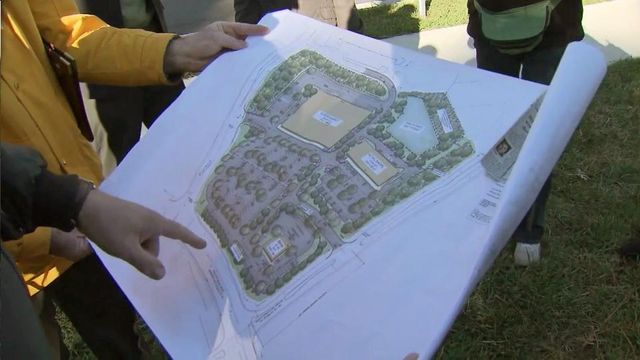Senate to vote on protest petition repeal
The state Senate is expected to vote Wednesday on a proposal to repeal the protest petition, a tool used by citizens to contest rezoning.
Posted — UpdatedUnder state zoning law dating from the 1920s, when a property in a city is proposed to be rezoned for development, as few as 5 percent of neighboring property owners can sign a protest petition against it. That petition stops the process from moving forward unless 75 percent of the city council votes to allow it to proceed.
House Bill 201, approved by the House in March, would repeal the current protest petition process and replace it with a different process for citizens to submit written input to their city council. Only a simple majority would be needed to override the protest.
Supporters of the bill argue that the process is archaic, dating to a time of rampant post-war development when property owners might not have had a way to know that adjoining property was being developed.
These days, argued sponsor Sen. Andy Wells, R-Catawba, rezoning is a months- or years-long process involving multiple boards, meetings and votes.
"All that process is advertised. Everybody knows what's going on," Wells told the Senate Commerce Committee on Tuesday.
Hickory has seven council members, he said, so it requires six ayes to pass the 75 percent mark needed to override a protest petition.
"We're talking about a situation where one vote on a body – a single vote – can change the outcome," Wells said. "We should not give one person on a board or in the legislature a veto over that body."
The repeal is supported by the North Carolina Homebuilders Association, the North Carolina Retail Merchants Association and the state's chapter of NAIOP, the Commercial Real Estate Developers' Association.
Speaking for NAIOP, lobbyist Joe Padilla said the protest petition "is used by one or two property owners to gain leverage over a developer so that they will gain personally."
"There is no effort here to take away the voice of the neighborhood," Padilla told the committee. "This will level the playing field for those seeking to sell their property in compliance with the land use plan."
Several repeal opponents also addressed the committee, including Marcel Dawson, a Charlotte resident whose neighborhood used the protest petition to stop what he said was "high-density, low-grade development" on adjoining property. That protest was eventually unanimously upheld by the Charlotte City Council.
"It functions for families like me that have other jobs, other things that we have to do. This law functions to basically allow us to fit into the process," Dawson told the panel. "Do not eliminate our voice as residents."
That plea was seconded by David Cox, one of the Raleigh residents who fought the development of a Publix shopping center in north Raleigh. The developer eventually pulled out of the project, expecting to lose a council vote.
Cox said the protest petition allows local residents to stand up to big developers with deep pockets and "simply helps us to level the playing field so little guys like myself and my wife can have a voice in the process."
Cox and Dawson both urged the Senate to consider tweaking the law to remove the super-majority requirement, rather than throwing out the process entirely. But Mike Carpenter with the Homebuilders' Association argued the process itself is the problem.
"The citizens of North Carolina have lost a great number of really great projects over the years," Carpenter said. "Cities that have invested in these projects have also lost because of a protest petition."
The bill cleared the committee on a voice vote.
Related Topics
• Credits
Copyright 2024 by Capitol Broadcasting Company. All rights reserved. This material may not be published, broadcast, rewritten or redistributed.




